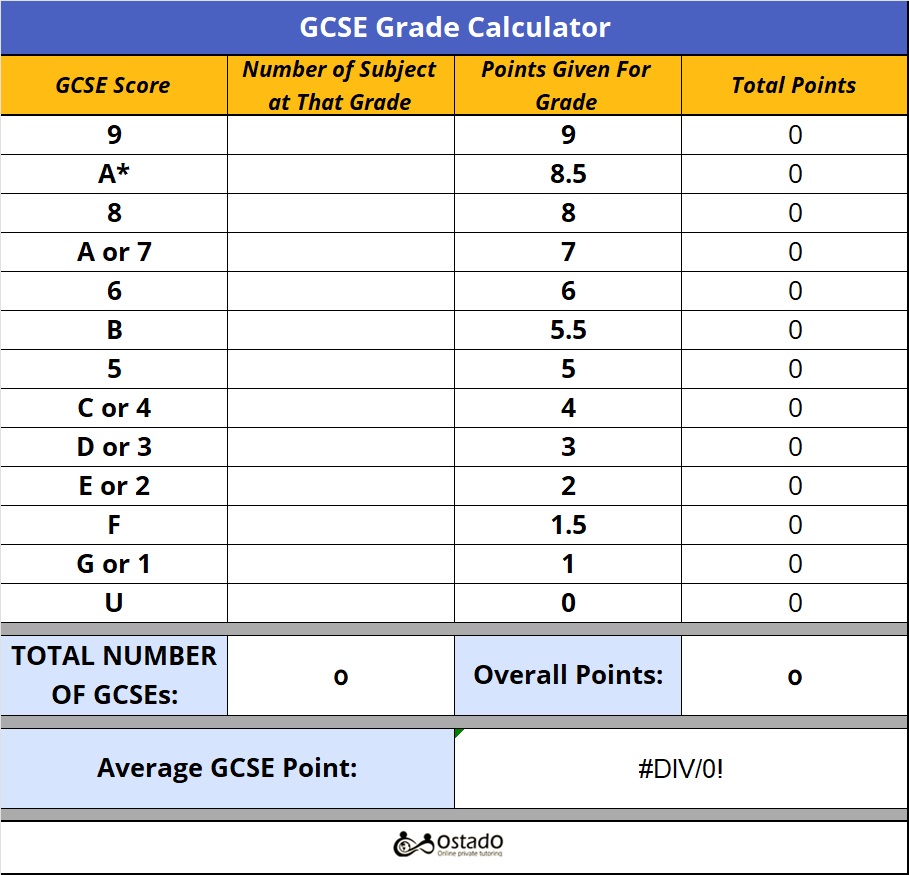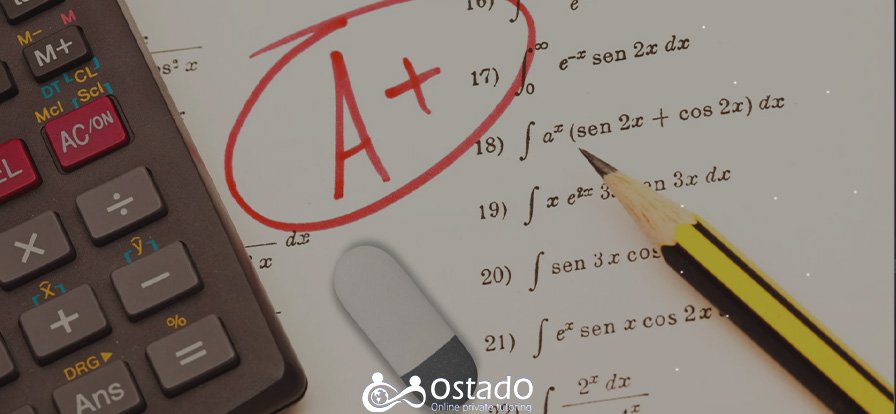“How did I do?” This is an annoying question that pops into your head the moment you set foot outside the exam hall. However, the GCSE results won’t be released until after two months. You can take a deep breath and wait until the results are released. Can you wait that long? If not, you can use a GCSE score calculator to estimate the results as a heads-up for what happens on the results day.
GCSE Grading Scale
Before I get to the calculation of GCSE grades, let’s have a quick overview of the GCSE grade scale and its meaning.
Traditionally, GCSEs were graded on an A* – G scale, with A* being the highest grade. This grading scale changed to a numerical scale in 2017. The new scale offers more differentiation, especially for higher grades, and it’s more in line with international educational standards.
In the new grading scale, 9 is the highest grade, and 1 is the lowest grade. Also, grade 4 is considered a standard pass, and 5 is considered a strong pass. Of course, saying what GCSE grades are good is very subjective and depends on your educational goals.
A Firm Step Towards Excellent Grades
You need high GCSE grades (7 or above) for the subjects you want to study at university, especially if you aim to study at a top university. However, achieving high grades is a lot of work and requires lots of planning, especially for difficult subjects like GCSE maths. So, if you’re after excellent universities, getting help from GCSE tutors paves the way for the realisation of your educational goals.
Calculating Your GCSE Grades
We have created an easy-to-use yet practical GCSE grade calculator to help you estimate the GCSE score before the GCSE results day. One of the features of this grade calculator is that it works for both letter grades and numerical grades.

In order to estimate your GCSE grades, you should understand the mark schemes and grade boundaries of your exam boards.
With a clear understanding of how many marks you’ve attained and determining the grade boundaries, you can now input the estimated grades in the GCSE score calculator. Download the Excel file for free and try as many GCSE scenarios as you wish.
Not satisfied with your GCSE grades? Click to find out what to do with bad GCSE grades.
How the Gcse Score Calculator Works
The first column consists of the GCSE grades in numerical and alphabetical values, and the values shown in the third column indicate the points for each GCSE grade.
You must count and then input the number of GCSEs next to the matching grade in the second column. For example, if you estimated that you have achieved three GCSEs with Grade 9, you have to insert a “3” in the first row of the second column.
The last column shows the points you get for each GCSE grade. The number is the result of the number of GCSEs multiplied by the points for that GCSE grade. You can also see the total number of GCSEs and the sum of points at the bottom of the table, and the last row shows the average of your total points.
Note:
Further Maths GCSE is not included in admission requirements so you shouldn’t include it in your GCSE score calculations. Instead, you can use the best grades in the English Language (or combined lang/lit) and up to four other subjects.
How Are Gcse Exam Papers Graded?
GCSE grades have a huge impact on the students’ future choices, and, as a result, grading GCSEs follows a meticulously designed process to ensure precision and fairness in the grades. Plus, exam boards conduct frequent checks and re-mark samples to ensure the soundness of the grading procedure.
Also read: Alternatives to GCSEs
“Alternatives to GCSEs can provide a more practical approach to learning tailored to different strengths and interests. The most popular options are functional skill courses and apprenticeships.
What are the options that could better suit your needs? Let’s explore these alternatives to find a path that helps you achieve your goals.“
1. Marking the Papers
When the exam papers are collected, trained examiners begin the grading process. These examiners have previously graded sample exam papers based on the specifications set by the respective exam board to ensure consistency and equity in grading the papers for all students.
2. Aggregating the Marks
For GCSEs that have multiple papers or include coursework, the marks are aggregated, and if a component has a different weight, it is considered in the aggregation.
3. Determining the Grade Boundaries
Then, the examiners decide on the grade boundaries, which are calculated based on the number of acquired marks. The grade boundaries are not determined in advance.
First, the examiners mark the papers and then exam boards compare the average to previous examinations. If the average is significantly lower (meaning that the exam was significantly harder), then they set lower grade boundaries for fairness.
4. Grading the Papers
Finally, the examiners compare each examinee’s marks with the grade boundaries and calculate the grade. For instance, if the student scores 125 marks and the boundary for Grade 4 is 120 marks, the student will get 4 for the respective GCSE.
Why Is Calculating GCSEs Important?
The best thing about calculating your GCSE points is answering the annoying question I mentioned at the beginning of the article. The calculation gives you a general idea of what grades you’ll receive, making the results day less surprising.
In addition, it reduces post-exam anxiety and helps you relax until the results are released and you can see how you have done.
Finally, you can use your GCSE scores calculation to set realistic academic goals and plan for future choices regarding Higher Education or career prospects.
FAQs - Calculating GCSE Scores
- How do I calculate my GCSE points?First, you should review the details about mark schemes and grade boundaries related to your exam board. Based on this information, you should estimate the grades for each of the GCSEs you have taken. Then, you input the details into the GCSE calculator, and the average of your GCSE points will be yielded.
- Is 7 a good GCSE score?If we consider 9 an excellent GCSE grade, we can say that 7 is a good grade. Please note that 7 is the minimum GCSE grade for entry requirements of most top universities.
- Is 3 a pass in GCSE?In the GCSE grading scale, 4 is defined as the standard pass and grades below 4 are a fail. So, the grade is a fail.

